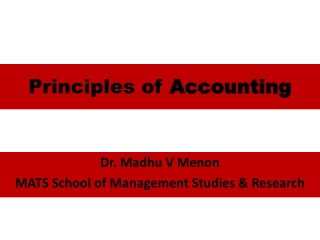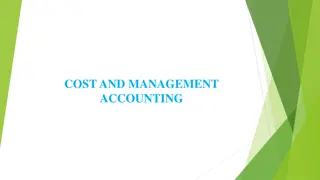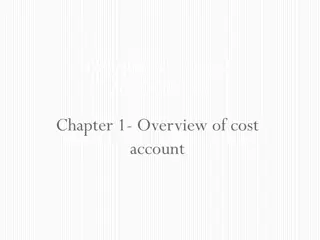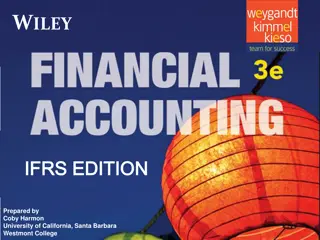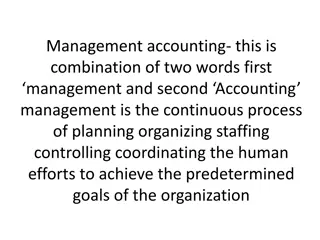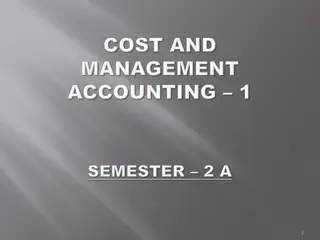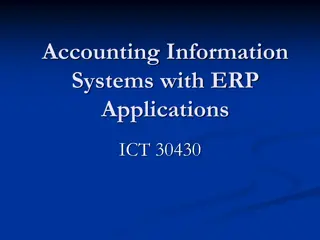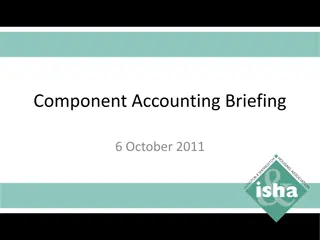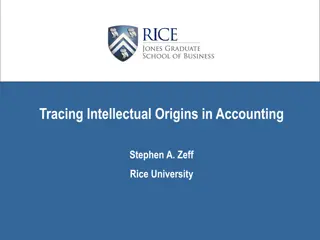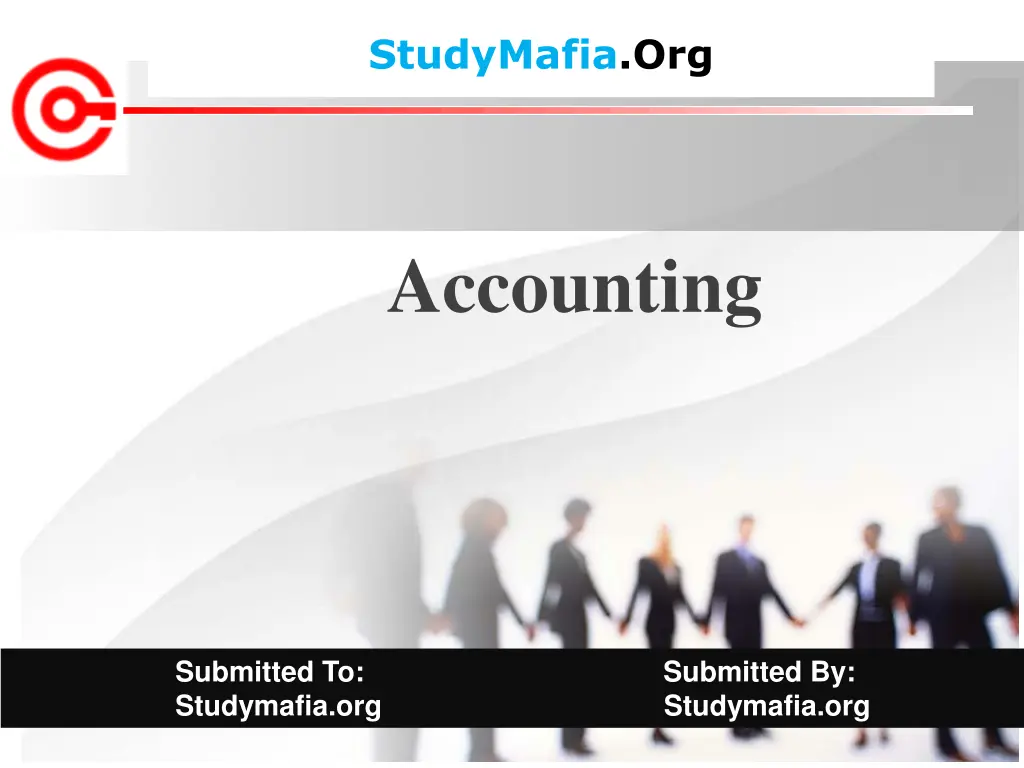
Understanding Accounting: Types, Importance, and History
Dive into the world of accounting to learn about its definition, importance, and historical background. Explore various types of accounting such as financial, managerial, and cost accounting, and understand how these disciplines play a crucial role in decision-making for businesses of all sizes.
Download Presentation

Please find below an Image/Link to download the presentation.
The content on the website is provided AS IS for your information and personal use only. It may not be sold, licensed, or shared on other websites without obtaining consent from the author. If you encounter any issues during the download, it is possible that the publisher has removed the file from their server.
You are allowed to download the files provided on this website for personal or commercial use, subject to the condition that they are used lawfully. All files are the property of their respective owners.
The content on the website is provided AS IS for your information and personal use only. It may not be sold, licensed, or shared on other websites without obtaining consent from the author.
E N D
Presentation Transcript
StudyMafia.Org Accounting Submitted To: Submitted By: Studymafia.org Studymafia.org
Table Contents Definition Introduction History of Accounting Types of Accounting Accounting Profession Importance of Accounting Conclusion 2
Definition Accounting is the process of recording financial transactions pertaining to a business. The accounting process includes summarizing, analyzing, and reporting these transactions to oversight agencies, regulators, and tax collection entities. 3
Introduction The financial statements used in accounting are a concise summary of financial transactions over an accounting period, summarizing a company's operations, financial position, and cash flows. Regardless of the size of a business, accounting is a necessary function for decision making, cost planning, and measurement of economic performance. 4
History of Accounting The history of accounting has been around almost as long as money itself. Accounting history dates back to ancient civilizations in Mesopotamia, Egypt, and Babylon. For example, during the Roman Empire, the government had detailed records of its finances. However, modern accounting as a profession has only been around since the early 19th century. 6
Types of Accounting Financial Accounting Financial accounting refers to the processes used to generate interim and annual financial statements. The results of all financial transactions that occur during an accounting period are summarized in the balance sheet, income statement, and cash flow statement. 7
Types of Accounting Managerial Accounting Managerial accounting uses much of the same data as financial accounting, but it organizes and utilizes information in different ways. Namely, in managerial accounting, an accountant generates monthly or quarterly reports that a business's management team can use to make decisions about how the business operates. 8
Types of Accounting Cost Accounting Just as managerial accounting helps businesses make decisions about management, cost accounting helps businesses make decisions about costing. Essentially, cost accounting considers all of the costs related to producing a product. Analysts, managers, business owners, and accountants use this information to determine what their products should cost. 9
Types of Accounting Tax Accounting While financial accountants often use one set of rules to report the financial position of a company, tax accountants often use a different set of rules. These rules are set at the federal, state, or local level based on what return is being filed. 10
Accounting Profession Auditor (internal or external): ensures compliance with reporting requirements and safeguarding of company assets. Forensic Accountant: monitors internal or external activity to investigate the transactions of an individual or business. Tax Accountant: strategically plans the optimal business composition to minimize tax liabilities as well as ensures compliance with tax reporting. 11
Accounting Profession Managerial Accountant: analyzes financial transactions to make thoughtful, strategic recommendations often related to the manufacturing of goods. Information and Technology Analyst/Accountant: maintains the system and software in which accounting records are processed and stored. Controller: oversees the accounting functions of financial reporting, accounts payable, accounts receivable, and procurement. 12
Importance of Accounting Accounting is necessary for company growth. Without insight into how a business is performing, it is impossible for a company to make smart financial decisions through forecasting. Without accounting, a company wouldn't be able to tell which products are its best sellers, how much profit is made in each department, and what overhead costs are holding back profits. 13
Importance of Accounting Accounting is necessary for funding. External investors want confidence that they know what they are investing in. Prior to private funding, investors will usually require financial statements (often audited) to gauge the overall health of a company. The same rules pertain to debt financing. 14
Importance of Accounting Accounting is necessary for owner exit. Small companies that may be looking to be acquired often need to present financial statements as part of acquisition or merger efforts. Instead of simply closing a business, a business owner may attempt to "cash-out" of their position and receive compensation for building a company 15
Importance of Accounting Accounting is necessary to make payments. A company naturally incurs debt, and part of the responsibility of managing that debt is to make payments on time to the appropriate parties. Without positively fostering these business relationships, a company may find itself with a key supplier or vendor. 16
Importance of Accounting Accounting is necessary to collect payments. A company may agree to extend credit to its customers. Instead of collecting cash at the time of an agreement, it may give a customer trade credit terms such as net 30. 17
Importance of Accounting Accounting may be required. Public companies are required to issue periodic financial statements in compliance with GAAP or IFRS. Without these financial statements, a company may be de-listed from an exchange. Without proper tax accounting compliance, a company may receive fines or penalties. 18
Conclusion Accounting, which is often just called "accounting," is the process of measuring, processing, and sharing financial and other information about businesses and corporations. Accounting is the processor keeping the accounting books of the financial transactions of the company. 19
Thanks To StudyMafia.org

